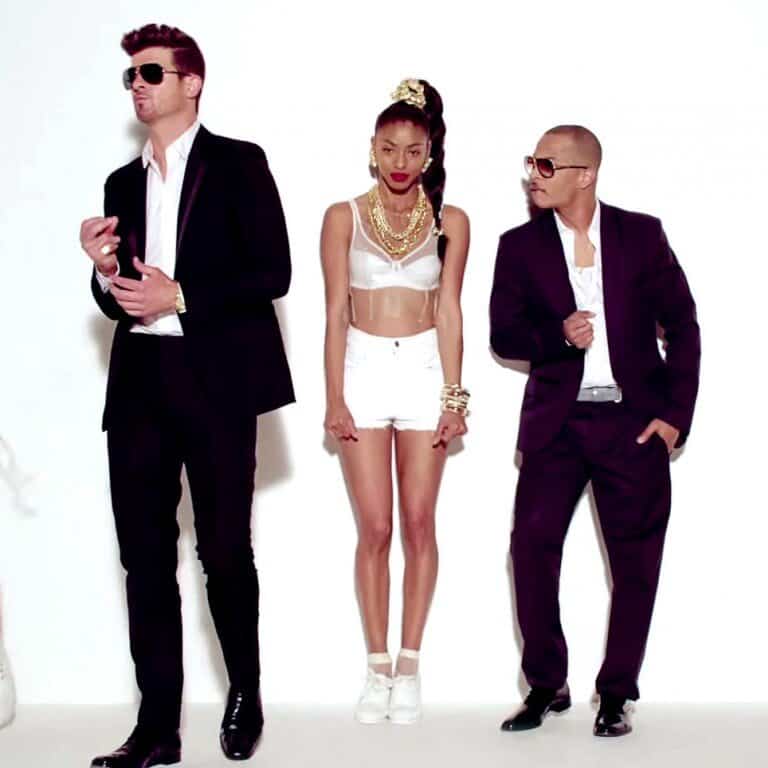When Robin Thicke lost the copyright suit that was brought against him by Marvin Gaye’s estate the music industry trembled with fear of repercussions. Many articles have been written about the case, but none make sense of what the court actually said, other than there was infringement. The case was brought alleged that Thicke’s song “Blurred Lines”—written and recorded in 2012 and later the top selling single in 2013—infringed upon Gaye’s copyright of the “Got To Give It Up” which was recorded in 1976.

In the district court Thicke filed for summary judgement in an attempt to preempt Gaye’s suit from proceeding to trial. Both parties presented expert testimony supporting their claims. After the court filtered out certain unprotectable similarities (such as cowbells, hand percussion, and background vocals) the court performed an analytical dissection and found that there were in fact similarities that would not allow for summary judgement (judgement entered on Thicke’s behalf without a trial).
At trial, the court ruled that Gaye could present an edited copy of “Got To Give It Up” so that it only captured certain elements, thus the full commercial song was never played. Williams and Thicke both testified that they had inspiration from Marvin Gaye and had access to “Got To Give It Up” throughout their careers. Thanks to expert testimony that showed the bass line similarities and claiming that “nearly every bar” of “Blurred Lines” contained a similarity, a jury ruled that Thicke had infringed upon the copyright, but they did not find Interscope liable for it in anyway. In total the district court awarded a total of $3.188 million to Gaye, the total profits from the song, $1.768 million to paid by Thicke and $357 thousand to paid by Williams.
When determining a copyright violation a plaintiff must show two elements: he or she is the real owner of the infringed work and the defendant copied protected elements of the work. Without direct evidence of copying the court proceeds to do a fact-based assessment to look is the defendant had “access” to the work and that the works are “substantially similar.”
Substantially similar is tricky, the court looks for a combination of unprotectable elements (notes) in a creative way or pattern which makes them protectable. This is what the jury found in this case. They felt that Thicke’s use of the bass line and the keyboard parts were substantially similar to Gaye’s, thus infringing on his rights (The experts went even further to say that “the songs’ signature phrases, hooks, bass melodies, word painting, the placement of the rap and “parlando” sections, and structural similarities on a sectional and phrasing level” were all similar enough in their opinion to find infringement).
Thicke appealed the district court’s ruling, sending the case to the 9th Circuit, but was unsuccessful in his attempt to overturn the verdict and get a new trial. The real damage to the music industry was covered in the dissent by Judge Nguyen, who highlights that this case is the first to allow one to copyright a musical style. He continues, “’Blurred Lines’ and ‘Got to Give It Up’ are not objectively similar. They differ in melody, harmony, and rhythm. Yet by refusing to compare the two works, the majority establishes a dangerous precedent that strikes a devastating blow to future musicians and composers everywhere.”
He argues that Gaye purported certain parts of the edited song in order to make them appear similar, which anyone can do to any song in a similar genre. I completely agree with him on this point. The songs had the same thoughts behind them based on creating a certain “type” or genre of music. These songs both contained unprotectable elements that when put together in certain orders may rise to a level of protection, but neither put them together in the same exact way thus there should be no finding of infringement. Judge Nguyen warns the Gaye’s saying, “The Gayes, no doubt, are pleased by this outcome. They shouldn’t be. They own copyrights in many musical works, each of which (including “Got to Give It Up”) now potentially infringes the copyright of any famous song that preceded it.”
As Judge Nguyen says, this is what happens when a court defers its assessment fully to music experts.